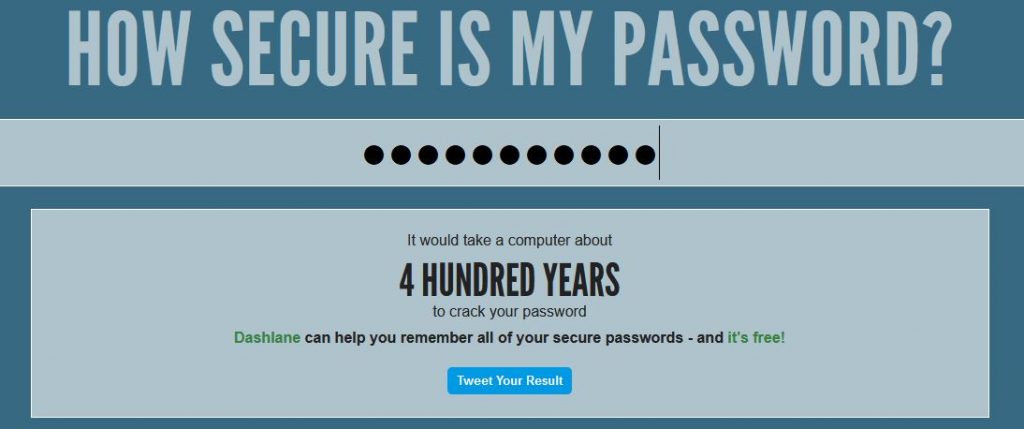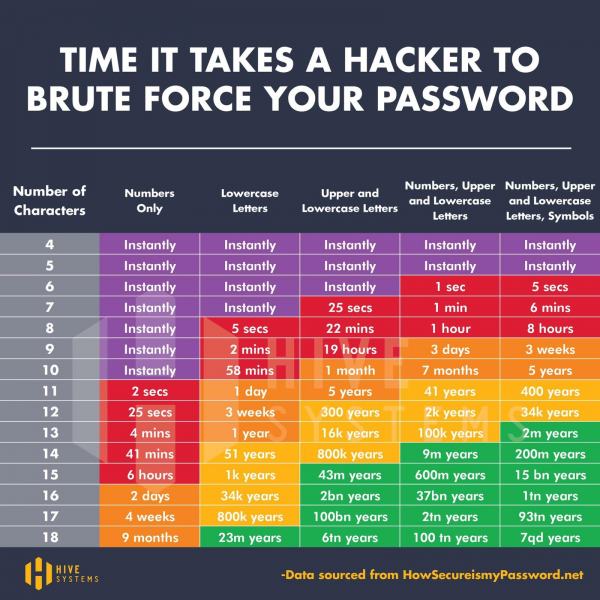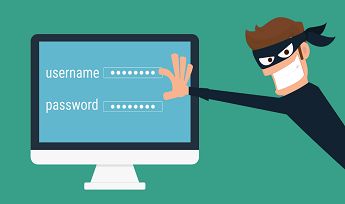Brute force attacks on peoples passwords is a method in which people use hacking tools to attempt to access your private data by attempting thousands of combinations of words and letters every minute until they get the right one.
This can then be used to encrypt your data for ransomeware purposes, get your banking information, or just get general personal info on you that you don’t want these people to have.
Depending on how complex your password is this can take anything from seconds to years to achieve and outlines how important it is to have a strong secure password.
In this blog post we are going to outline some good password practises and how best to protect yourself, but before we get to that we’d like to firstly outline a great website you can use to check how long it would take a brute force attack to learn your password.
https://howsecureismypassword.net/
If you go to the site above and type in one of your passwords you’ll be able to see the time needed to brute force guess it. The site is totally safe to use as none of your data is sent anywhere.
Below is a screen shot taken of a password we put into the site. As you can see we’re pretty happy with it as it would take around 4 hundred years to crack.


Best practises for password security
Password Length – Longer passwords are always better. The more characters in a password the longer it will take to crack. Sometimes adding in 1 extra digit can add on months or even years to the time it would take to crack the password. We would recommend using passwords with a minimum of 12 characters.
Dictionary Words – Try not to use dictionary words. When brute forcing a password the systems use dictionary words first as they tend to be the most common for passwords.It’s much more secure to use a jumble of letters and numbers that don’t mean anything.
Mix Things Up – Touched apon in the last point, you want to use a mixture of lowercase, uppercase, numbers and symbols in your password. Using all 4 of these greatly increases the difficulty required to crack your password.
Password Duplication – You don’t want to use the same password on more than one site. This helps avoid people getting into multiple accounts if one of your passwords is ever compromised.
Below is a good visual representation of how using the methods above can make your password much more secure.

How can ITP help?
We are always looking at best practise methods for protecting and securing our customers data. We can run a check on all your systems to make sure you’re doing everything you can to keep yourself safe. That not only includes passwords but security in general as well as backups of data. Please feel free to use the contact form below to get in touch if you’d like ITP to help you with your security needs.

